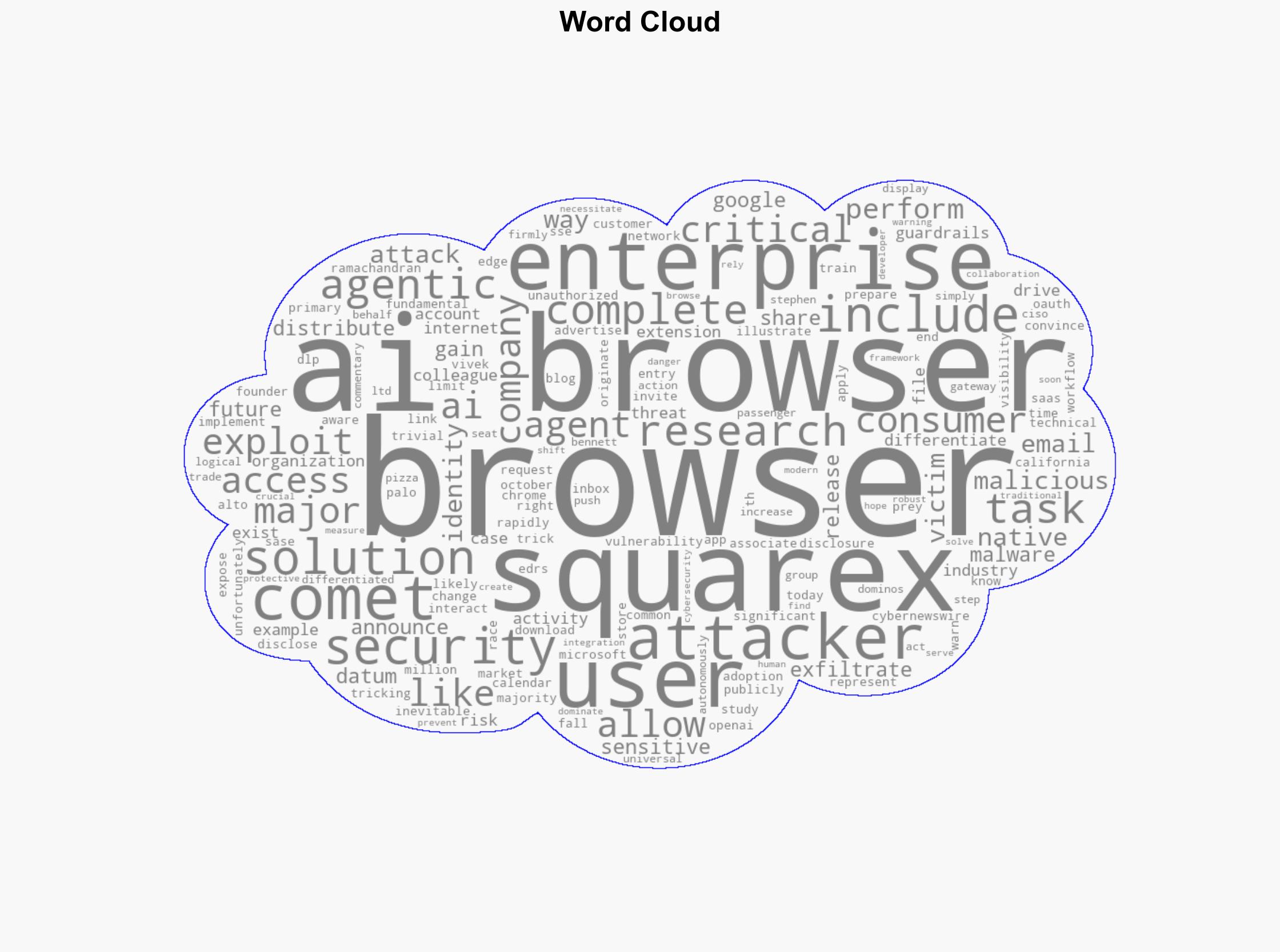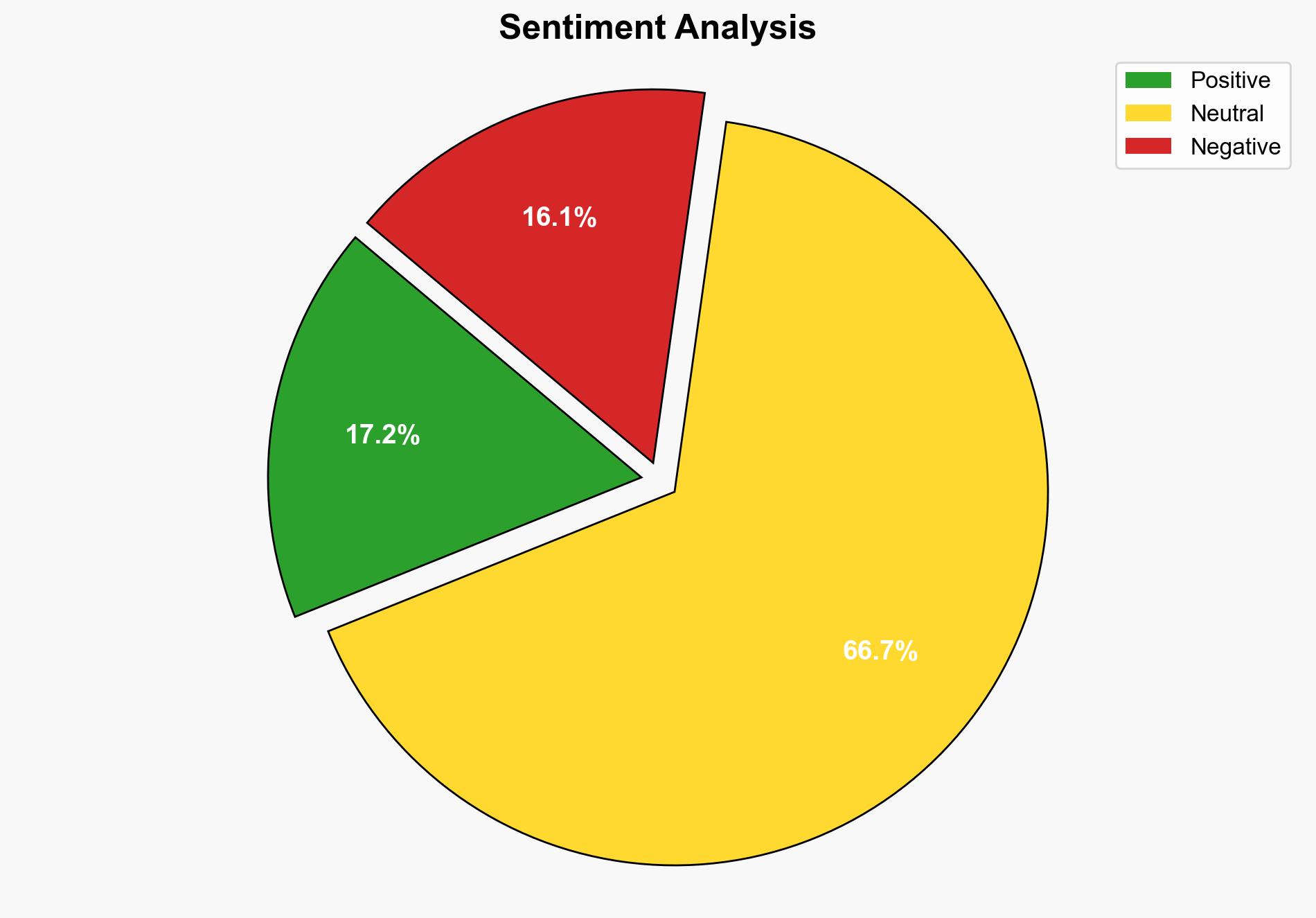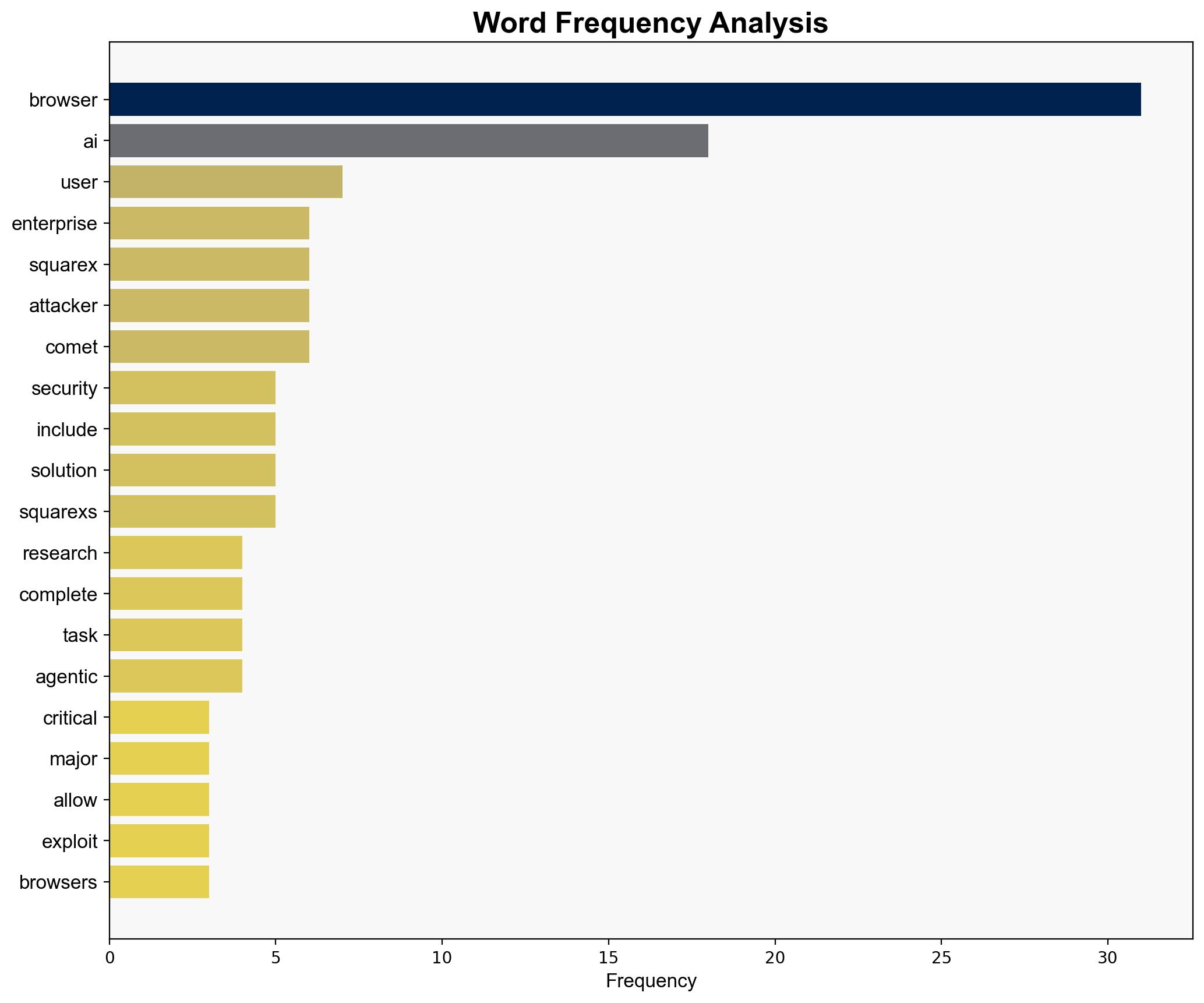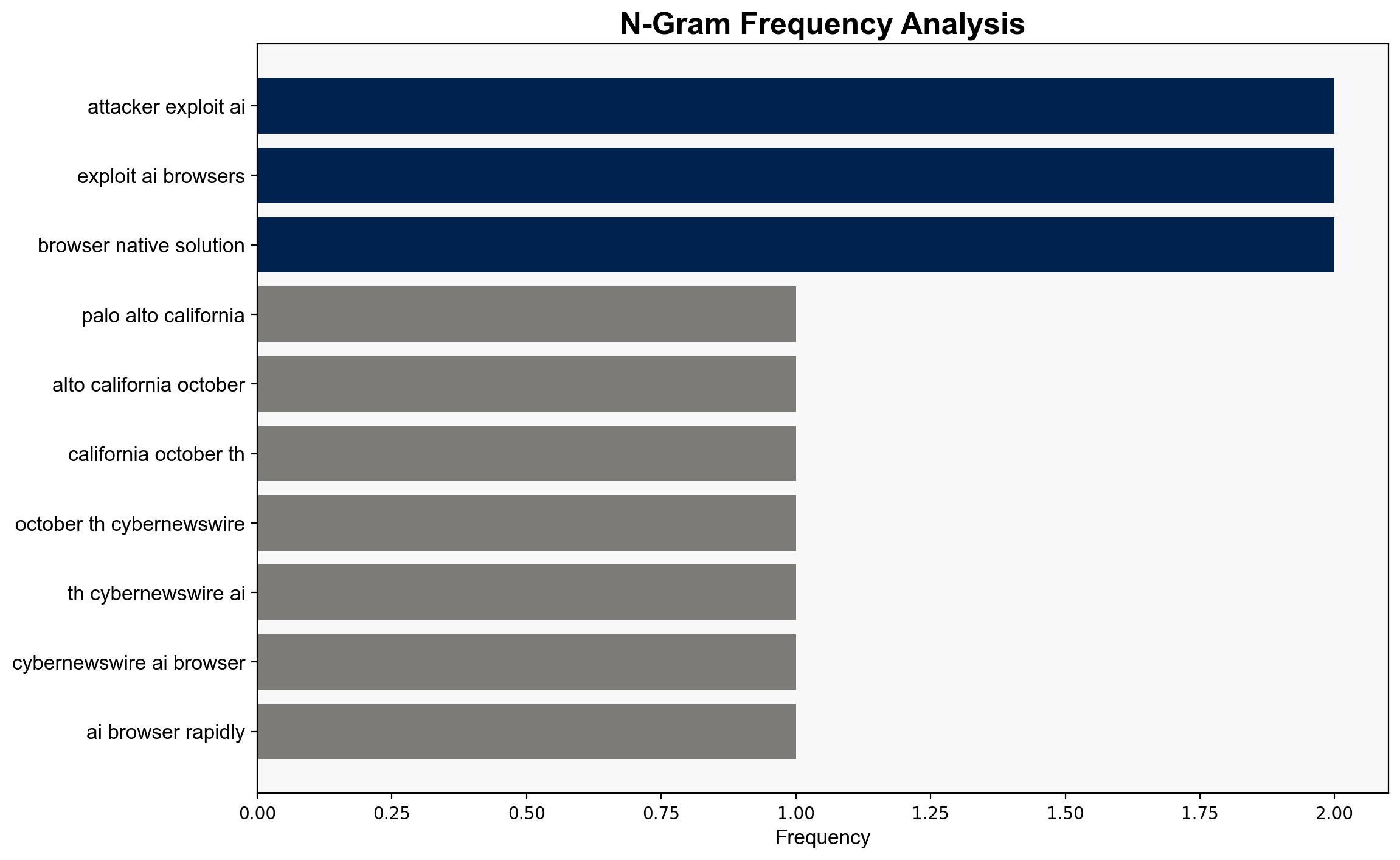SquareX Shows AI Browsers Fall Prey to OAuth Attacks Malware Downloads and Malicious Link Distribution – Next Big Future
Published on: 2025-10-09
Intelligence Report: SquareX Shows AI Browsers Fall Prey to OAuth Attacks, Malware Downloads, and Malicious Link Distribution – Next Big Future
1. BLUF (Bottom Line Up Front)
AI browsers present significant cybersecurity vulnerabilities, particularly to OAuth attacks and malware distribution. The most supported hypothesis is that AI browsers, without robust security frameworks, are highly susceptible to exploitation. Confidence level: High. Recommended action: Immediate development and implementation of enhanced security protocols for AI browsers.
2. Competing Hypotheses
Hypothesis 1: AI browsers are inherently vulnerable to OAuth attacks and malware distribution due to their autonomous nature and lack of integrated security measures.
Hypothesis 2: The vulnerabilities in AI browsers are overstated, and existing security solutions can be adapted to mitigate these risks effectively.
Using ACH 2.0, Hypothesis 1 is better supported as the source highlights specific instances of AI browsers being exploited and the lack of current solutions to differentiate between user and AI actions. Hypothesis 2 lacks evidence of successful adaptation of existing security measures to address these unique challenges.
3. Key Assumptions and Red Flags
Assumptions:
– AI browsers will continue to gain market share and become a primary tool for internet interaction.
– Current cybersecurity measures are insufficient for AI browser-specific threats.
Red Flags:
– Lack of detailed examples of successful mitigation strategies.
– Potential bias in reporting from SquareX, which offers a security solution.
4. Implications and Strategic Risks
The rapid adoption of AI browsers without adequate security measures could lead to widespread data breaches and unauthorized access to sensitive enterprise applications. This poses economic risks through potential financial losses and reputational damage. Cyber threats could escalate as attackers exploit these vulnerabilities, potentially impacting geopolitical stability if critical infrastructure is targeted.
5. Recommendations and Outlook
- Develop AI-specific security protocols, including agentic identity differentiation and enhanced data loss prevention (DLP) measures.
- Encourage collaboration between AI browser developers and cybersecurity firms to create robust security frameworks.
- Scenario Projections:
- Best Case: Rapid development of security solutions mitigates risks, allowing safe AI browser adoption.
- Worst Case: Widespread exploitation of AI browsers leads to significant data breaches and economic losses.
- Most Likely: Incremental improvements in security measures reduce but do not eliminate risks.
6. Key Individuals and Entities
– Vivek Ramachandran
– Stephen Bennett
– SquareX
– Dominos Pizza Enterprises Ltd
7. Thematic Tags
national security threats, cybersecurity, counter-terrorism, regional focus




